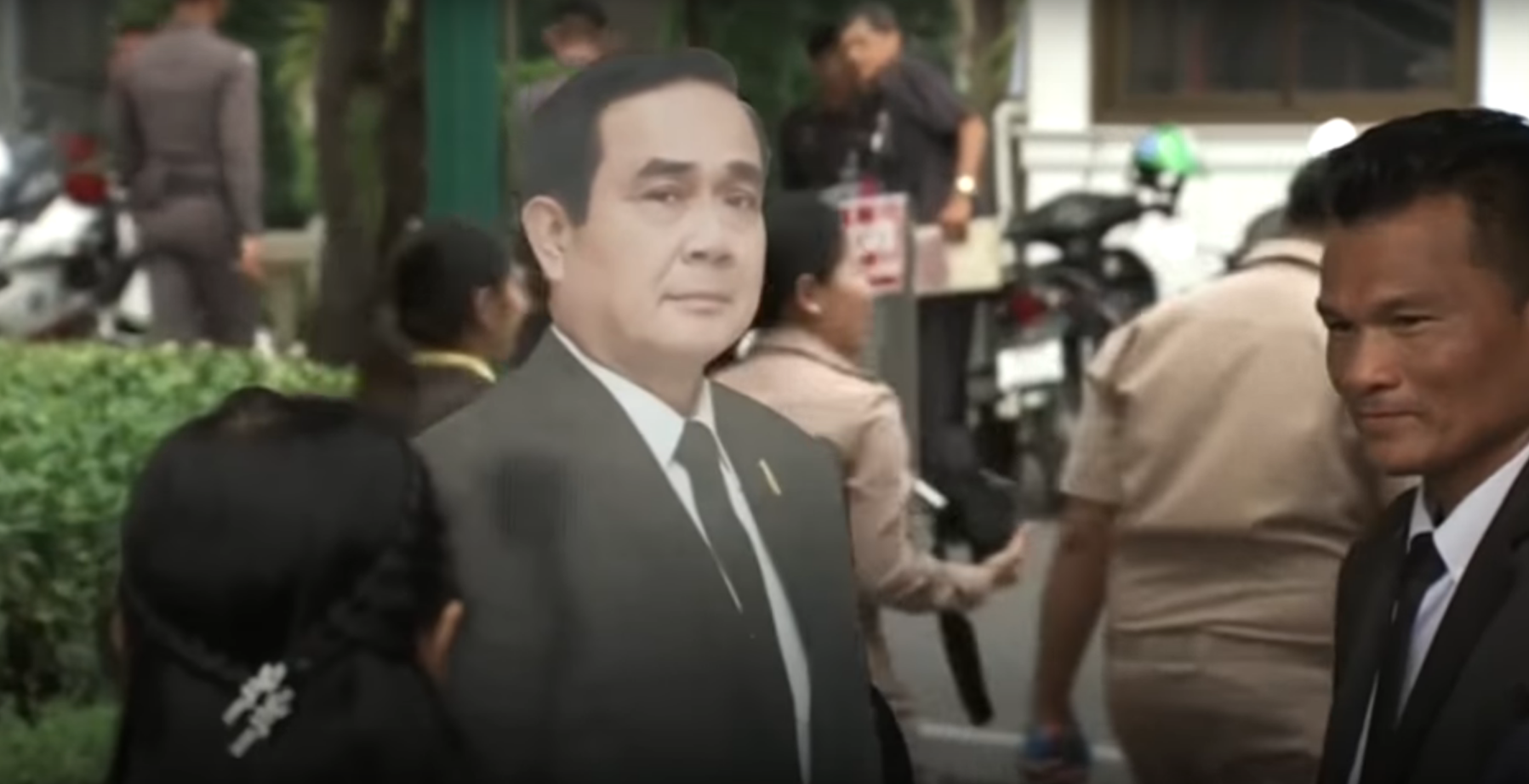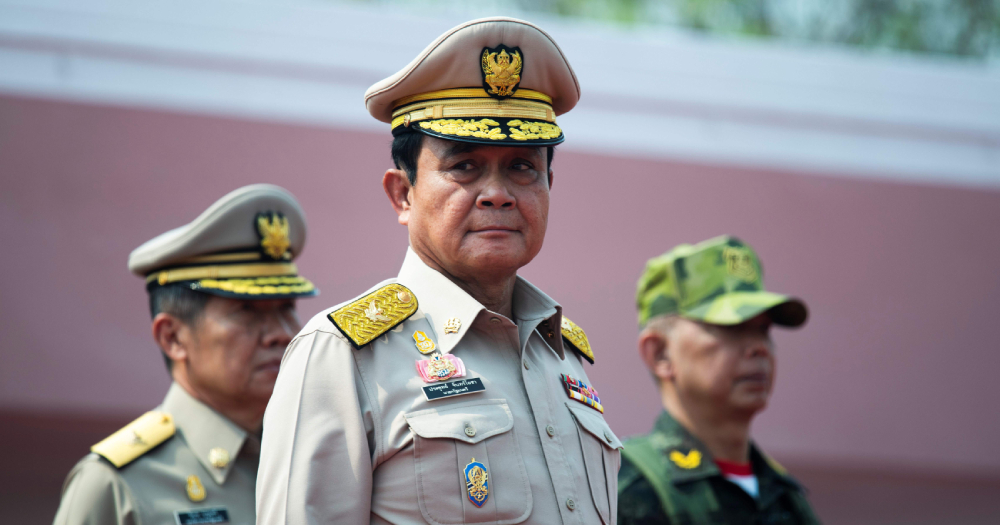What is happening in Thailand?
Thailand's military government, or junta, has been steadily losing support among the Thai population over the years.
The junta came into power in May 2014 -- the 12th coup since Thailand's first coup in 1932 -- taking over from the caretaker government of Thailand, following six months of political crisis.
What crisis is the junta facing now?
In fact, the junta is now facing a public perception crisis, according to Reuters.
International and domestic polls have revealed the general public's disappointment in the junta's performance.
What is causing this crisis?
The perception that corruption is rife within the government is pervasive too.
This is causing the military government under Prayuth Chan-ocha to be falling out of favour with the Thai public.
Chipping away of democracy within the country
Prayuth was the first coup leader to become the country's prime minister.
Since he came into power, he abolished the constitution and put into effect a new military-drafted constitution that allows for an unelected prime minister.
This was also the loophole that Princess Ubolratana used to potentially become prime minister when she was nominated by the Thaksin-linked Thai Raksa Chart party.
The Thai Raksa Chart party has since been dissolved by Thailand's Constitutional Court, a move that was criticised by its supporters and legal experts.
Promise to return country to democracy not kept
In 2014, after conducting the bloodless coup that ousted Yingluck Shinawatra's government, Prayuth promised that he would return Thailand to democracy within two years, according to Reuters.
The military government has pushed back the election date repeatedly, as many as five times.
Stopping opposition from gaining a foothold
Analysts say the delay is to prevent Thaksinite parties from gaining power.
Parties linked to Thaksin are extremely popular with the rural poor in the north and northeast regions.
In particular, Pheu Thai, which is the main opposition, had won every single election in the past 14 years.
It is projected to be the largest party in the lower house, according to Bloomberg.
Tough road ahead for junta when popularity wanes
If this happens, Payuth's coalition might lack a majority in the lower house, and it could be tough for his government to pass a budget or legislation.
But the new constitution that the junta pushed through in 2016 allows Prayuth to impose a "20-year plan" that all future governments have to adhere to, ensuring the country remains in the junta's grip for the next 20 years.
Crackdown on protests
Time wrote that under Prayuth's control, many Thais fear the country is going through a regression to authoritarianism.
Rehabilitation of naysayers
After the 2014 coup, hundreds of activists, journalists and citizens were called in for "attitude adjustment" sessions.
Peaceful demonstrators protesting against the junta are routinely detained.
Several activists have also been put in jail for criticisms and protests against the junta and the government-backed constitution.
Undemocratic actions
Prayuth had also notoriously brought a life-sized cardboard cutout of himself to a press conference, and directed journalists to ask the cutout questions instead.
 Screenshot via BBC News/YouTube
Screenshot via BBC News/YouTube
Political programming
The former Commander in Chief of the Royal Thai Army has also found ways to creep into the lives of ordinary Thais.
For three years, a programme that stars Prayuth has been airing every Friday evening, reported Reuters.
The programme, called Sustainable Development from a Royal Philosophy, sees Prayuth talking on a variety of issues, and often times offering questionable solutions to problems.
For instance, he advised people to "work harder" to get rid of poverty, and to stop shopping in order to avoid debt, according to Time.
Slowing economic growth & growing inequality
The country's economic growth has slackened under the junta's rule, according to The Economist.
Promises to revive the economy by improving infrastructure have gotten nowhere, and few of the junta's plans have been carried out.
Also, according to Credit Suisse, Thailand is now the most unequal country in the world, with the richest 1 percent owning more than two-thirds of the country's wealth.
And for many in Thailand's rural areas, life has become tougher since the junta took over in 2014.
The upcoming election is not helping either, with analysts saying whoever wins would simply enable the continued shift towards economic populism, where the government focuses on winning the rural vote rather than investing in high-skilled areas.
This would end up encouraging farmers to stay in low productivity jobs, which does little to improve the country's competitiveness.
Political gridlock to continue
Prayuth had campaigned on the success of his military government in maintaining peace and stability, which is more likely to resonate with the country's affluent middle class.
The junta has also painted the election as a platform to give democratic power back to the people.
The election is set to take place on March 24.
But voters have already geared up for early voting.
Turnout was strong in the one-day registered event on Sunday, March 17.
Citizens want civilian rule back
Many expressed their wish to exercise their democratic right, and hoped to bring back civilian rule.
But even with the highly-popular Pheu Thai and its splinter groups, as well as relatively new political parties such as Future Forward that is gaining popularity fast among the younger Thai population, experts say Prayuth is almost guaranteed a shoo-in for the role of Prime Minister due to the various safeguards put in place by the junta.
Still, this does not mean Prayuth would have an easy job.
Analysts say even after the election, Thai politics is likely to be plagued by a continued gridlock between the military and popular elected politicians.
Top image via JEWEL SAMAD/AFP/Getty Images
If you like what you read, follow us on Facebook, Instagram, Twitter and Telegram to get the latest updates.
